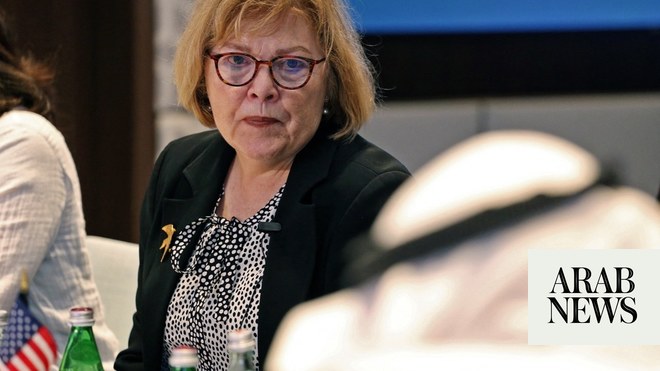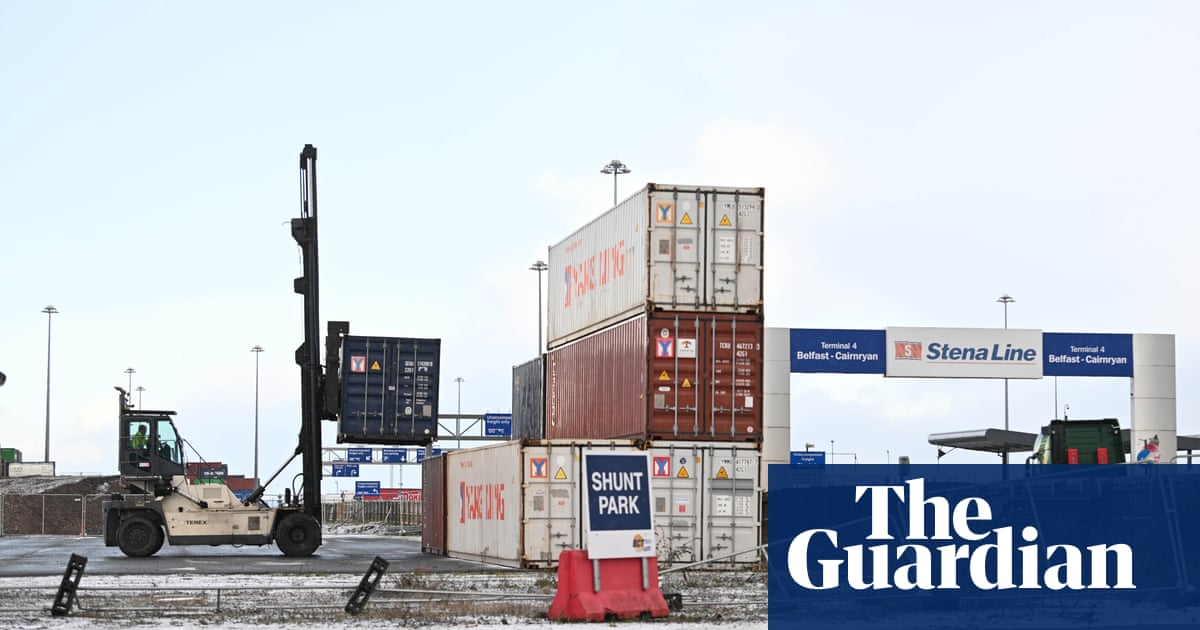
Barbara Leaf, US assistant secretary of state for Near Eastern affairs, visited Jordan, Egypt, Lebanon, Tunisia and Libya between March 15 and 25
The issues she discussed with officials included escalating tensions in the West Bank, economic reforms in Lebanon and Tunisia, and elections in Libya
WASHINGTON: Barbara Leaf, the US assistant secretary of state for Near Eastern affairs, had productive meetings with the Arab leaders and officials during her recent trip to the Middle East, she said on Thursday.
She discussed with them a wide range of urgent political and economic issues, including economic reforms in Lebanon and Tunisia, elections in Libya, and heightened tensions in the occupied West Bank.
Leaf visited Jordan, Egypt, Lebanon, Tunisia and Libya between March 15 and 25. She said her trip “focused on the US’s enduring interests in the Middle East and North Africa” and was an opportunity to reinforce President Joe Biden’s priority of an affirmative framework of American engagement in the region. She added that she also engaged in troubleshooting on some issues.
“I reaffirmed US support for de-escalating conflicts, support for democratic principles and elections, human rights and key economic reform,” she said.
During her briefing, attended by Arab News, Leaf said she worked with officials from Jordan, Palestine and Israel on efforts to reduce the threat of violent conflict between Israelis and Palestinians during Ramadan, which this year coincides with upcoming Jewish feast of Passover and Christian celebration of Easter.
Representatives of the US, Jordan, Egypt, Israel and the Palestinian Authority also held meetings earlier this month in the Jordanian port city of Aqaba and Sharm El-Sheikh in Egypt to discuss security precautions and efforts to de-escalate tensions in the occupied West Bank, in light of Israeli army operations deep within cities in the territory. At least 80 Palestinians have been killed by army forces so far this year, and scores wounded or arrested. Several Israelis have also been killed.
The legislative elections in Israel in November resulted in the formation of a coalition government led by Prime Minister Benjamin Netanyahu that is described as the most far right in the nation’s history. Some cabinet members have openly called for violence against Palestinians and more Jewish settlements on Palestinian land, which are considered illegal under international law.
Palestinian officials accuse such extremist members of the Israeli government of stoking rising tensions and supporting settler violence against the Palestinians in occupied territories.
Regarding the recent rapprochement by some Arab states with Syria, Leaf said officials told her that they believe the international isolation of the Syrian regime and its president, Bashar Assad, has not worked and so they want to try engagement instead. She said she advised them to make sure “to get something out it.”
As for the US position on Syria, she reiterated that Washington will not engage with the regime and will maintain its sanctions on it and key officials.
“The US approach to Syria is unchanged: We don’t intend to normalize relations with Syria,” she said. “The regime is a disaster for its own people and the region.”
Leaf said she met Libyan leaders and other key officials in Tripoli, and that the people of the country want democracy and unity.
“Libyans have made it clear that they want to vote and want a unified government,” she said.
During her meetings with Lebanese officials, she urged them to implement desperately needed economic reforms and “emphasized the urgency” of electing a new president. The office has remained empty since Michel Aoun’s term ended in October, as politicians have been unable to agree on a successor.
Meanwhile the country is engulfed in a devastating financial crisis and efforts to implement economic reforms needed to unlock billions of dollars of international assistance have stalled.
Leaf said the US remains committed to efforts to bring stability to Lebanon and its people, and highlighted the financial assistance recently provided to members of the Lebanese Armed Forces. She added that she urged Lebanese leaders to work with the International Monetary Fund as it is only “lifeline” that can help the country out of its economic crisis.
During her visit to Tunisia, Leaf gave assurances that the US supports the people of the country and their right to democratic government. She said she also urged Tunisian leaders to continue with the process of economic reform.












